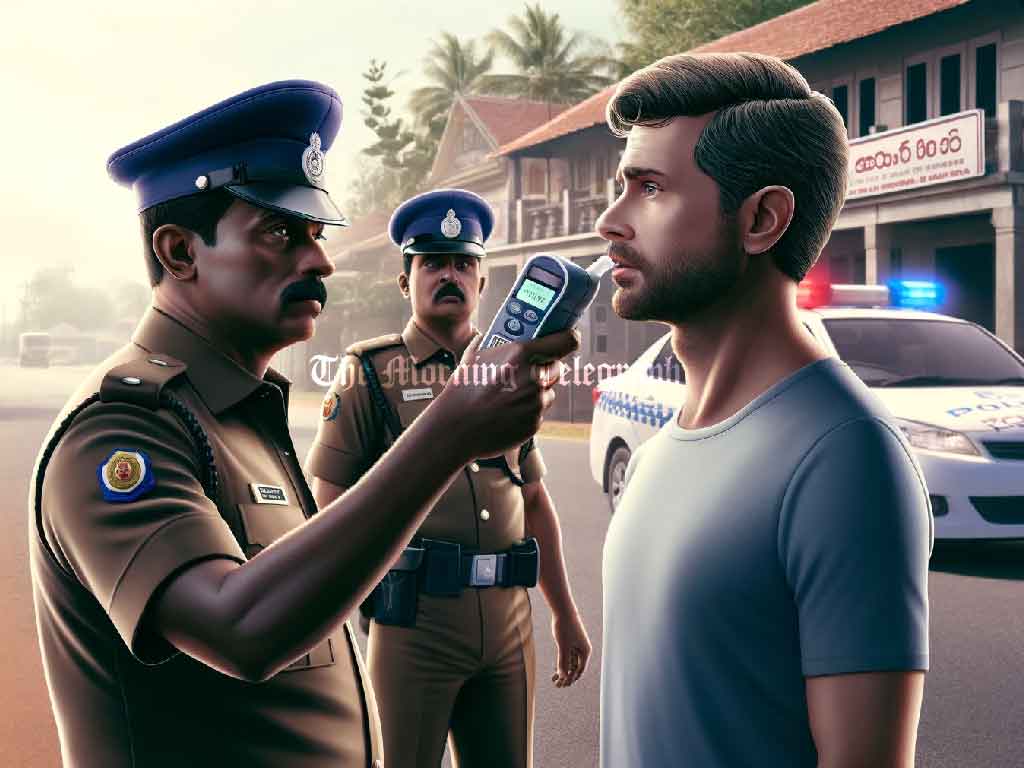
A motorist who claimed not to be drunk and suffers from a rare form of diabetes has sought justice in court after a breath test conducted by the Kirindiwela police revealed he was intoxicated.
The 57-year-old man from Radawana, a graphic artist by profession, had gone to Kirindiwela town on Thursday afternoon, January 2, to buy groceries with his wife. Two traffic police officers approached him, accused him of being drunk, and took him to the police station to confirm it.
The motorist informed the police that he had not consumed alcohol since December 24. However, the breath test conducted by the police forcibly came back positive for alcohol.
The motorist requested a referral to a Forensic Medical Officer (JMO), but the police refused. He was later released on police bail and ordered to appear in the Pugoda Magistrate’s Court on January 7.
The motorist, Chula Bandara Bannahaka, explained that he took a blood sample the next day, which came back negative for alcohol. Further tests revealed that he was suffering from a rare form of diabetes.
A medical professional explained that in cases of uncontrolled diabetes, high blood sugar (hyperglycemia) can lead to the production of ketones. When cells cannot use glucose effectively due to insulin resistance or a lack of insulin, the body begins to break down fat for energy, resulting in the production of ketones.
This condition, known as diabetic ketoacidosis (DKA), is dangerous and characterized by high blood sugar and elevated ketone levels. High ketone levels can lead to the formation of acetone, which can be detected in a breath test as similar to the formula found in alcohol.
Senior criminal lawyer Ajith Pathirana, appearing for the accused, carefully listened to the medical analysis presented at the Pugoda Magistrate’s Court. He argued that the suspect could be found not guilty if the police investigation proved unsatisfactory.
However, due to the immense stress and financial burden the accused motorist had already suffered, he pleaded guilty. As a result, his driving license was suspended for three months, and a fine of Rs. 25,000 was imposed.
Lawyer Ajith Pathirana criticized the police for not referring the motorist to a forensic medical officer, stating that a blood test for alcohol should have been conducted immediately. He argued that this was a clear violation of the law and that there are legal grounds for further action against the injustice done to the victim.
The motorist has since filed a complaint with the Gampaha Senior Superintendent of Police regarding the suspicious conduct of the Kirindiwela police, and an investigation is underway.
Deputy Minister of Health and Mass Media Dr. Hansaka Wijayamuni stated that rare medical conditions can interfere with standard breathalyzer tests, leading to incorrect results. He emphasized that convicting innocent individuals could set a dangerous precedent for the law and society.
Dr. Wijayamuni also revealed that the accuracy of these breathalyzers, imported by a businessman-turned-politician, was discussed with Deputy Minister of Transport and Highways Dr. Prasanna Gunasena at the National Transport Medical Institute (NTMI).




